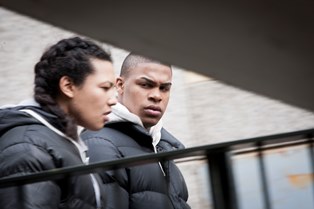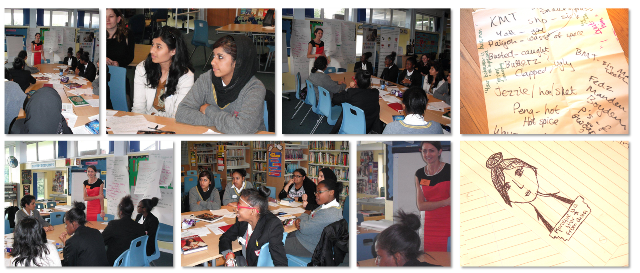Polly Courtney on developing your characters and how extensive research into the subject of her novel brought her characters to life.

Perhaps it's because I fell into writing by penning a semi-autobiographical novel about my time as a junior banker in the City, but I truly believe that the best books are written by people who have breathed the air that their characters breathe and - even if only temporarily - lived the lives that their characters live. This doesn't mean that you're limited to writing about your everyday routine (although you certainly can; you'd be surprised at how interesting your life might seem to others). If the daily commute doesn't cut it for you, or if you write for escapism, not catharsis, then of course you can stray from your own area of expertise. Stef Penney, winner of the 2006 Costa Book Prize, famously set The Tenderness of Wolves in the bleak wilderness of northern Canada without leaving British soil. (Suffering from agoraphobia, she found it hard even getting to the British Library to look it up in the archives.) But I have learnt that if you choose to set your book in a world that is not your own, then you need to get to know that world.
I'll say it again, because it's really important: Get to know that world.
Reading a headline about the migrant workers in Kent does not qualify you to write about life as a migrant in Britain today. Joining an online forum for zoo-keepers will not arm you with enough information to write convincingly about animals in captivity. But… it's a start.
When I decided to tell the story of the London Riots through the eyes of a disenfranchised fifteen-year-old girl, I knew I needed to spend time researching before I could even think about plotting out my chapters. I was determined to write Feral Youth from Alesha's perspective, in Alesha's dialect, with Alesha's south London slang and attitude. As a white, middle-class 32-year-old with no experience in youth work or teaching, I needed some help.

Read around the subject
As a first step, I embarked on an intense period of secondary research, immersing myself in press clippings, trawling Google, scanning Twitter, reading reports and official inquiries - not just on the riots but on peripheral subjects like Stop & Search, youth opportunities, unemployment and the portrayal of young people in the media. Wherever possible, I got in touch with the authors of studies and documentaries, conducting informal interviews with anyone who would talk. I attended seminars and debates and attended a particularly brilliant photographic exhibition on the riots by Lewis Whyld.
Soon I had built up an idea of the issues my protagonist and her brethren might face, but I was still a long way from understanding what was going through her mind, how she lived her life, what she spent her time doing and ultimately [spoiler alert], what drove Alesha to risk prison time by getting involved in the riots. Desk research is immensely useful, but for a truly alien world, it's not enough.
Speak directly to the people who matter
I needed to get inside the head of a rioter - and more generally, I needed to spend time with young people.
I put out a call to the teachers, social workers and charity workers in my network, to see whether they might (a) talk to me about their experiences and opinions, and (b) hook me up with some young people.
Being honest and open about what I was hoping to achieve (and where I was starting from) was perhaps one of the reasons people were willing to help - and boy, did they help. Every conversation I had in a classroom, youth centre or café helped to shape Alesha and the rest of the cast in some way, and to give the scenes a realistic backdrop. How would I have known that teenagers spend their time riding buses and smoking 'draw', had I not spent a morning in a Upper Norwood with a class of lippy 15-year-old girls? How would I have written about jezzies or paigons, or the mandem or the fedz, had I not held phonetic writing workshops with brilliantly rude teens?

I called on a Jamaican friend-of-friend to make sure I'd got the Jamaican Patois right (I hadn't) and entertained many a youngster by attempting to speak the slang they had taught me. Each classroom assistant and charity worker I met would refer me to others who were willing to offer their time, and before long I had a network of youth workers and young people helping to craft my novel. I began to realise that the people I spoke to were not just helping me research Alesha's world; they were also dropping big hints about how I needed to market this book and I learned very quickly that I'd have to adapt my marketing plan. (Top tip: Young people are more likely to hang out on YouTube than to read newspaper book reviews. I ended up making a movie-style trailer for Feral Youth.)
Breathe the air your characters breathe

This might sound crazy, but I also spent a lot of time hanging around in Peckham, just watching and listening and sniffing the air (yes, really). Hearing the blend of reggae and dubstep and grime gave me a soundtrack to the barber's where Alesha and JJ spent their nights. Even now, when I smell greasy fried chicken I find myself back on Rye Lane, watching the hair extensions and crisp packets swirl in the breeze, feeling angry and frustrated just as Alesha might have felt.
My research was extensive and hard at times. There were moments when I wondered whether I'd bitten off more than I could chew. But after a while, Alesha and JJ and Twitch and Ash were there, fighting for space in my head and dying to tell their stories. When it came to writing the book, I barely had to lift a finger. The characters did all the work for me.
Polly Courtney is the author of six published novels and some ongoing film projects. She started out as an investment banker and wrote her first book, Golden Handcuffs, because she wanted to expose the reality of life in the Square Mile. Having discovered her passion, she went on to write Poles Apart, a light-hearted novel based on her Polish migrant friend’s experiences in England. Subsequent novels have covered sexism, racism, fame culture and the summer riots and her most recent novel, Feral Youth, is about disenfranchised youth in a summer of discontent. Find out more on her website here
Comments